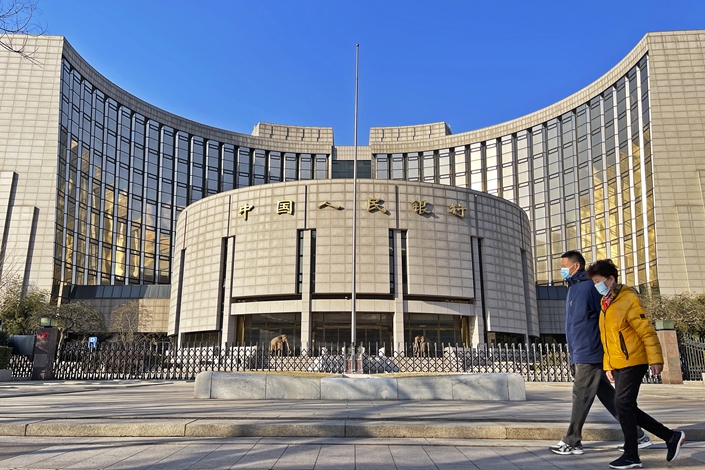
Back in 2020, a rather heated debate over whether there should be a monetization of China’s fiscal deficit put a spotlight on policy coordination between the central bank and the finance ministry. Back then, the government announced a 1 trillion yuan ($145 billion) quota for special government bonds to fight the Covid-19 pandemic. Recently, the disclosure of a more than 1 trillion yuan profit transfer made by the People’s Bank of China (PBOC) to the Ministry of Finance once again ignited a relevant discussion.
First of all, it is not surprising that the central bank has booked profits. The amount of profit the central bank has partly depends on its asset structure; while the transfer amount depends on the negotiation between the central bank and the finance ministry.
Compared with the U.S. Federal Reserve, which has a relatively simple profit structure, the PBOC has a more complicated asset structure and hence a more complex way of calculating its profit. Based on its published balance sheet, about one-third of the PBOC’s assets are foreign exchange reserves, one-fifth are government bonds, and another large portion are income and losses from relending.
Following a two-year suspension, the finance ministry will be receiving a profit of more than 1 trillion yuan from the central bank this year. This prompted many other government agencies and enterprises to ask the ministry to give them some of the funds and eventually left the finance ministry no choice but to publicly disclose details about the profit transfer. It emphasized that the money is reserved for tax refunds and the central government’s transfer payments to local governments in order to stabilize employment and protect people’s livelihoods. Whether the move can materialize into expansionary fiscal policy effects will depend on whether the ministry can make good use of the funds. During the process, efficiency and transparency will be closely monitored.
Read more Caixin Explains: Why China’s Central Bank Is Handing Over 1 Trillion Yuan to Treasury
The announcement of the profit payment drew attention from the domestic market, with some describing the move as a “monetization of fiscal deficits” — when the central bank prints extra money for the government to spend. The PBOC immediately addressed the market concerns, saying that the profit payment is not a form of fiscal deficit and that the finance ministry is not extracting excessive profits from the central bank.
The practice of deficit monetization has been used in Europe, the U.S. and Japan in recent years. China hasn’t done so because this hasn’t been necessary, and there is still room for the adjustment of macroeconomic policies. Also, since China is still in the process of establishing a modern fiscal system and modern central banking system, the practice of monetizing fiscal deficits is inappropriate.
A PBOC research team previously published an article advocating clear boundaries between the finance ministry and central bank. The report said that allowing the central bank to implement monetary policy independently will benefit currency stability and boost economic development. If the functional boundary between the two entities is blurred, there could be over-issuance of money and risk of high inflation, and the central bank could even be hindered from performing its role properly.
For the central government, making good use of these two key macro tools — the finance ministry and the central bank — is about setting straight the relationship between the government and the market, clarifying the responsibilities of each entity, and ultimately promoting the modernization of China’s national governance system and governance capacity.
Ling Huawei is managing editor of Caixin Media and Caixin Weekly.
This article has been edited for clarity and length.
Contact translator Kelsey Cheng (kelseycheng@caixin.com) and editor Joshua Dummer (joshuadummer@caixin.com)
Get our weekly free Must-Read newsletter.







